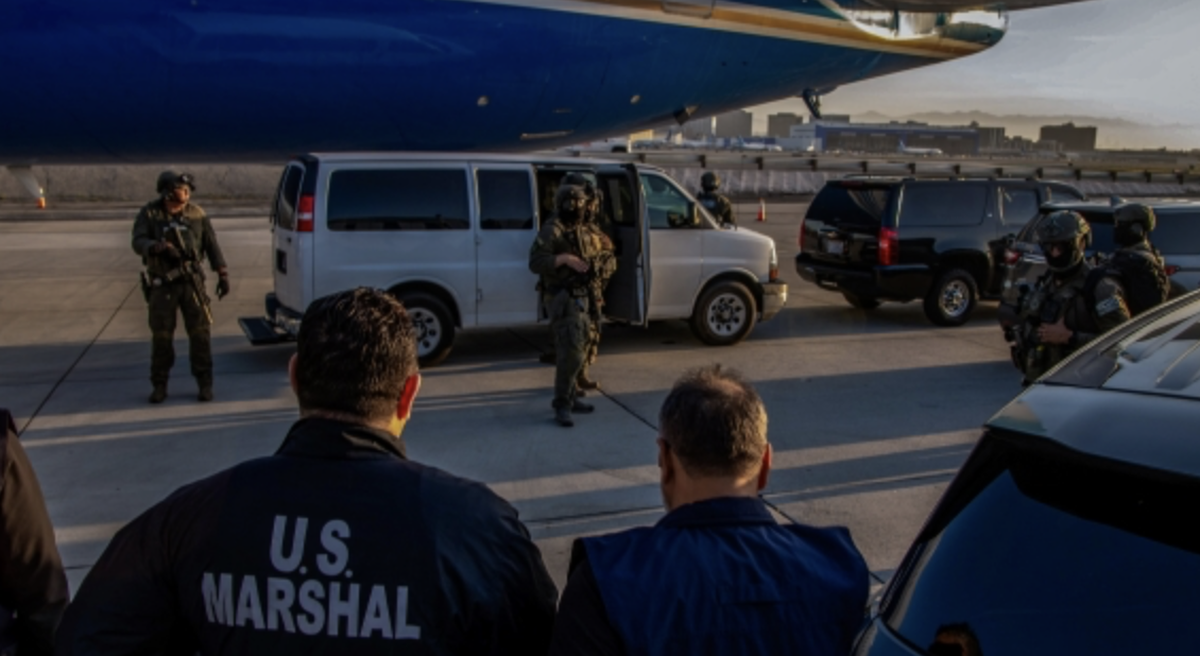[ad_1]
U.S. Marshals in the Central District of California on Tuesday transferred custody of Tahawwur Rana, a Pakistani national and Canadian citizen, to representatives from India’s Ministry of External Affairs.
| Photo Credit: U.S. Marshals Service photo by Shane T. McCoy
Tahawwur Hussain Rana, accused of playing a major role in the Mumbai 26/11 terror attacks, was extradited to India by the United States this week. Rana’s extradition is a critical step toward seeking justice for the six Americans and scores of other victims who were killed in the heinous attacks.
The extradition, which comes after 17 years of the Mumbai terror attacks that left 166 people dead, is proof of the success of India’s counter-terror diplomacy with the U.S., and the tenacity of Indian investigators.
Rana is charged with numerous offenses, including conspiracy, murder, commission of a terrorist act, and forgery, related to his alleged involvement in the 2008 Mumbai terrorist attacks committed by Lashkar-e-Taiba (LeT), a designated foreign terrorist organisation.
Opinion | Justice after extradition: On Tahawwur Hussain Rana
He was first arrested by the U.S. in 2009, as an accomplice of David Headley, the Lashkar-e-Taiba (LeT) operative tasked by Pakistan to carry out the reconnaissance for targets in Mumbai by LeT terrorists, as well as for being a part of a plan to attack a newspaper office in Copenhagen.

U.S. Marshals in the Central District of California on Tuesday transferred custody of Tahawwur Rana, a Pakistani national and Canadian citizen, to representatives from India’s Ministry of External Affairs.
| Photo Credit:
U.S. Marshals Service photo by Shane T. McCoy
As Headley’s childhood friend and colleague, Rana, a Canadian citizen and a former Pakistan military doctor, helped plan the attacks and facilitate his multiple entries to India, including once after the attacks, according to U.S. prosecutors. While Rana was not convicted for the Mumbai attacks in the U.S. trial, he was convicted for his LeT terror links and involvement in the Copenhagen conspiracy, and spent some part of a 14-year sentence in U.S. prisons.
 #
#
His extradition will allow Indian prosecutors to put on trial one of the men charge-sheeted in absentia for the 26/11 attacks; to extract more information on his Pakistan links; and to further the cause of justice after the dastardly attacks that brought the nation to a standstill. Ajmal Kasab, the only one of the 10 LeT gunmen caught alive, was convicted and hanged in 2012.

On April 9, the U.S. Marshals Service executed the Secretary’s surrender warrant by surrendering Rana to Indian authorities for transportation to India. Rana’s extradition is now complete. As per a press release by the U.S. Department of Justice, the U.S. Marshals Service and attorneys and international affairs specialists in the Justice Department’s Office of International Affairs provided support to this extradition. The FBI’s Legal Attaché Office in New Delhi also provided assistance.
[ad_2]
U.S. releases images of Rana being handed over to Indian authorities







